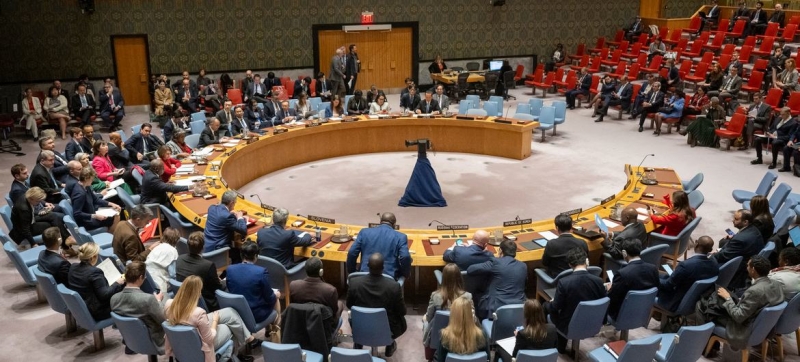
Security Council meeting at UN headquarters in New York. Syria crisis: UN calls for de-escalation in the region and support for the population Peace and security
The situation in Syria continues to deteriorate amid growing violence, a humanitarian crisis and destabilization in the region, UN representatives said at a Security Council meeting. They called for immediate de-escalation in the region and assistance to the population, which is facing unprecedented hardship.
The Bloodiest Year
UN Special Envoy for Syria Geir Pedersen is currently in the country, his deputy Najat Rochdi told the Security Council. Pedersen will meet with representatives of the Syrian government in the coming days. Earlier, the Special Envoy visited Astana, where he held meetings with participants in the Astana format.
“It is obvious that the primary task for Syria is de-escalation. The country is being hit by regional conflicts and internal violence,” Rochdi said.
The current year has every chance of being the bloodiest in the last five years, she added.
Escalation of hostilities
One of the key factors aggravating the situation in Syria is the escalation of hostilities against the backdrop of the escalation of the regional conflict. Israeli airstrikes in Syria have increased.
“Just yesterday, dozens of people were killed in a strike near Palmyra – possibly the most fatal Israeli attack in Syria to date,” Rochdi said.
She also stressed that Israel’s strikes also damage civilian infrastructure: “Residential areas in central Damascus were hit, as well as bridges, roads, civilian and official and unofficial border crossings.”
In addition, Turkey continues to strike targets in Syria. “Following the terrorist attack in Ankara on October 23, Turkey struck targets it described as PKK/SDF targets. These strikes caused civilian casualties and severely damaged critical infrastructure,” Rochdi said.
Refugees from Lebanon
More than 540,000 people have crossed the Lebanese border into Syria since the end of September. Two-thirds of the refugees from Lebanon are Syrians, half of them children.
“We welcome the Syrian government’s commitment to keeping the borders open,” Edem Wosornu, the UN Office for the Coordination of Humanitarian Affairs (OCHA) operations director, told the Security Council.
At the same time, airstrikes are forcing people to take longer and more dangerous evacuation routes, she noted. Two of the five official border crossings have been damaged so far, including Jaidet Yabus in Damascus province and Jusiyah in Homs.
The situation is complicated by limited funding. Of the $324 million requested by the UN in October to help displaced people, only $55 million has been received to date.
According to the UN, some displaced people are already returning to Lebanon without receiving the assistance they need.
Increase funding for humanitarian operations
Difficulties crossing borders and damage to infrastructure are complicating the delivery of humanitarian aid to Syria.
“Due to damage to checkpoints, trucks are forced to travel longer routes, which leads to an increase in the cost of goods,” said Vosoronu.
She welcomed the Syrian government’s extension of permission to use the Bab al-Salam and Al-Rai border crossings for the delivery of aid from Turkey until 13 February 2025.
The UN urges donors to increase funding for humanitarian operations to ensure assistance reaches millions of people.
